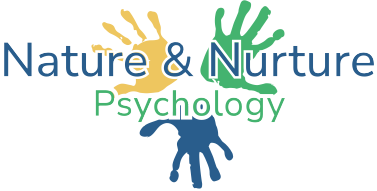If your child has experienced early trauma, we know how much you want to support their healing. You may be wondering why we ask you to be part of their therapy sessions rather than just working with them one-on-one. The reason is simple: healing happens in relationships, and you are the most important person in your child’s healing journey.
1. Trauma Happens in Relationships—So Healing Must, Too
Children who have experienced early separation, neglect, or inconsistent care often struggle with trust, emotional regulation, and feeling safe in relationships. Therapy is not just about helping them process their feelings—it’s about helping them learn to connect, trust, and feel secure with you as their parent. When you are part of the sessions, we can work together to strengthen your bond and create new, healing experiences for your child.
2. You Are Your Child’s Most Important Source of Support
A therapist may only see your child once a week, but you are with them every day. That means you are the person who can offer them the most comfort, guidance, and security. By being part of therapy, you will learn ways to support your child’s emotions, respond to their needs, and strengthen your connection—so that healing continues outside of sessions, in the moments that matter most.
3. Children Feel Safer Healing With Their Parent
Talking about difficult emotions or past experiences can be overwhelming for children. When you are in the session with them, they don’t have to process these feelings alone. Instead, they learn that they can turn to you for support and comfort, building their trust in your relationship.
4. Therapy Should Strengthen, Not Replace, Your Relationship
Sometimes, when children see a therapist alone, they form a strong bond with the therapist but still struggle at home. While it’s wonderful for them to feel safe with their therapist, our goal is to make sure they feel safe with you. By participating in therapy together, we ensure that the healing work strengthens your relationship, rather than becoming something separate from it.
5. We Help You Feel More Confident in Supporting Your Child
Parenting a child who has experienced early trauma can be challenging. Many parents tell us they feel unsure about how to respond to big emotions or behaviors. When you are part of therapy, we can offer you real-time support, helping you understand what your child is going through and how best to help them. You don’t have to figure it out alone—we are here to guide you every step of the way.
6. Change Happens at Home
While therapy is a valuable tool, true healing happens in everyday moments—during mealtimes, bedtime routines, and daily interactions. By working together in therapy, we help you create a home environment where your child feels safe, understood, and connected, giving them the security they need to thrive.
In Summary:
We invite you to be part of your child’s therapy not because we think you’re doing something wrong, but because you are the key to their healing. Your presence, understanding, and support will make all the difference. Together, we can help your child feel safe, loved, and secure—not just in therapy, but in life.
Dr Sarah Saveker, Clinical Psychologist / Director of Nature and Nurture Psychology
If you have any further questions, or to find out more, please contact info@natureandnurturepsychology.com or visit the website www.natureandnurturepsychology.com or take a look at our instagram @naturenurturepsychology for more tips and information
